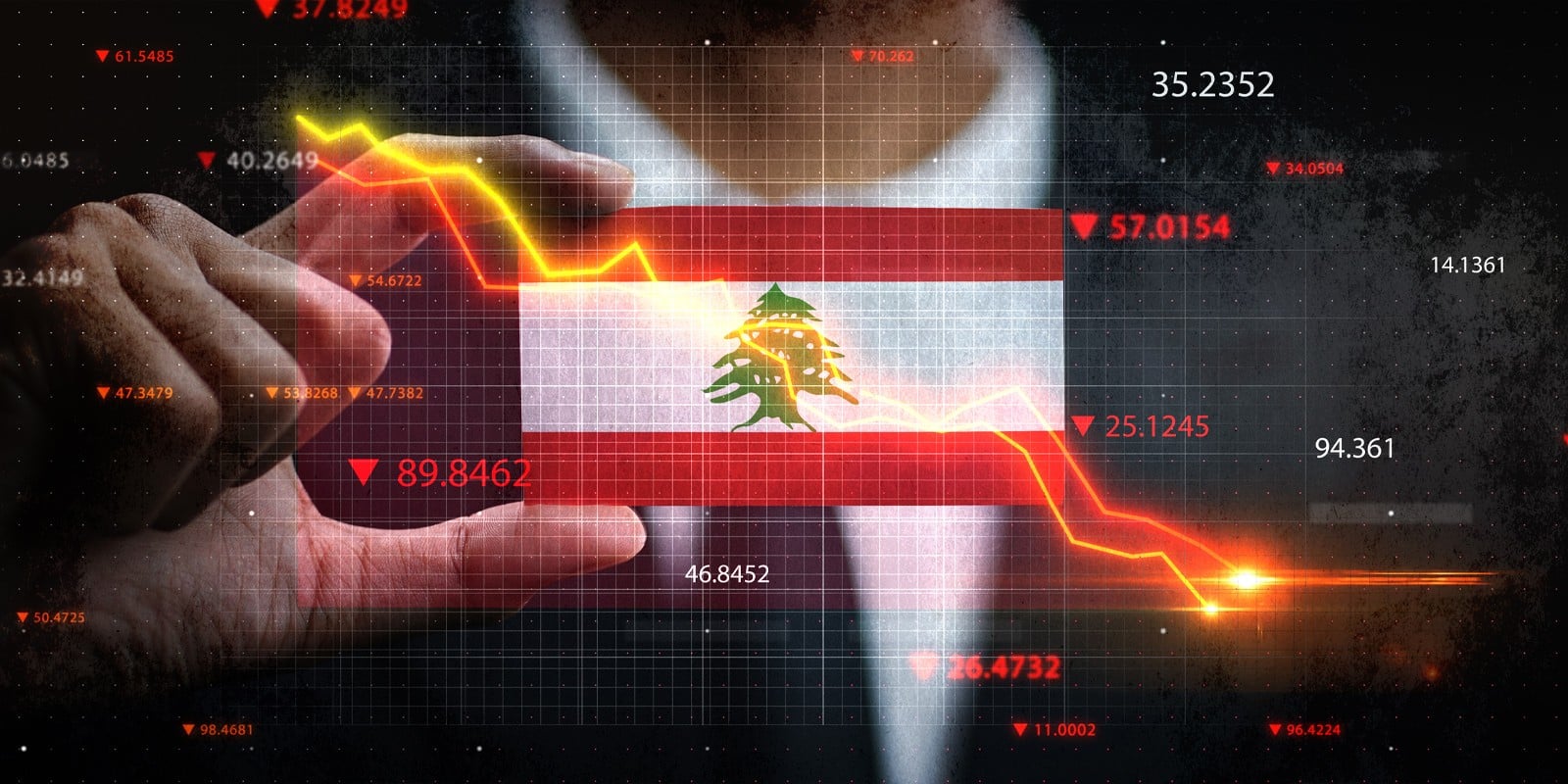Israel should study the strategic consequences of the continuous economic deterioration in Lebanon, with an emphasis on the Shiite community’s situation. It might favor Hizballah.
In the past, Israel failed to recognize trends in Lebanon – especially in the Shiite community. Had Israel been more attentive, its strategic situation might have improved. The present economic collapse in Lebanon, which mainly results from malfeasance and corruption at the highest levels of government, could lead to further strengthening of Hezbollah’s position.
Israel and the Adversities of the Shiite Community in Lebanon
Since its invasion to Lebanon in 1982, Israel has missed-out on significant changes taking place in the Shiite community in Lebanon. Already in the early stages of war, Israel refrained from engaging in a serious dialogue with this community and treated it as a minor factor in the Lebanese political arena; instead, emphasizing ties with Christian forces. Israel also was late in recognizing the radicalization taking place in this community in the 1980s and the 1990s. Israel’s policies contributed to this trend and pushed additional villages into the arms of Hezbollah, primarily because of collective punishment against Shiite villages in southern Lebanon in response to Hezbollah’s terrorist attacks. (Note: Most South Lebanese Army members also were Shiite, and the community was deeply resentful of Palestinian organizations because of their brutal rule over southern Lebanon in the 1970s).
Since Israel’s retreat from Lebanon in 2000, and particularly since Hezbollah became the strongest force in Lebanon (a process that was accelerated after Syria removed its forces from Lebanon in 2005), Israel seemed to ignore processes within the Shiite community, particularly its social-economic development. The growing Shiite stake in Lebanon restrains the use of force against Israel. Creating a Shiite bourgeois class strongly connected to Hezbollah’s leadership, parallel to the fighting of Hizballah in Syria, has brought economic and social considerations to Hezbollah’s forefront, which shoved aside the military focus on Israel. Therefore, the common wisdom that Lebanon’s economic collapse is in Israel’s interest because it weakens Hezbollah – is a questionable proposition.
Lebanon’s Financial Collapse
It is important to clarify that the current economic collapse in Lebanon is not a result of Hezbollah’s conduct, but mainly of the malfeasance of Lebanon’s economic leaders. This includes its various prime ministers since the Al-Taif Agreement in 1989, and ever since Riad Salame became Governor of the Central Bank of Lebanon. Salame has made it easier for politicians to divert dollars from Lebanese banks into the Central Lebanese Bank, allowing the government to draw funds. All this has been part of an ongoing trend of running a demand-oriented economy based on importing products, without laying the foundations for a productive economy.
On the one hand, Lebanese banks have attracted many investments of Lebanese citizens living in and out the country, ensuring high returns (interest reaching over 7%). On the other hand, the Lebanese state has avoided tax collection from the large financial corporations that are well connected with the political elite, and has failed to invest properly in order to make the Lebanese economy productive. The move of dollars into Lebanese banks and from there to the Central Bank has failed to keep pace with growing demographic and economic needs. This process led to the fall of the Saad Al-Hariri government in October 2019.
Since then, the Hassan Diab government (which took office January 2020) has not articulated a coherent economic policy, and has constantly given in to pressure from Western actors (mainly the US) who threaten to exact a price from Lebanon if the Central Bank Governor is fired, and from domestic political players who disagree about the Governor’s performance and about economic directions for Lebanon. The main issue currently in dispute is whether Lebanon should ask the World Bank and the International Monetary Fund for financial support, and accept the hard conditions entailed; or alternatively “head east” by fully and publicly renewing its relationship with Syria, and from there open the trade lines with Iraq, Jordan and even the Gulf states.
Consequences for the Shiite Community
This process also affects the Hezbollah-led Shiite community, which has been hit by a decrease in Iranian support. (Iran is under severe US sanctions, and also has been hit by the decline in energy prices). The prevailing thinking in Israel (as well as in the US and in Europe) is that a deterioration in the Lebanese economy will force the Lebanese government to invest all its efforts in economic recovery. This will require all of Hezbollah’s energy too, and divert the organization from terrorist activity.
On the other hand, one should consider the implications of economic depression on all sectors in Lebanon, and particularly the Shiite community.
One may safely assume that the difficult economic situation in Lebanon will accelerate emigration to the West and to Gulf countries by pro-Western liberals in Lebanon. This will only increase the influence of Hezbollah and its allies in the political system, leading even to a demand for changing the current political order in Lebanon. This is still based on distribution of power between Christians and Muslims (both Sunnis and Shiites). A shift in favor of the Muslims would give the Shiites more representation in national institutions and more say in allocation of resources. Another possibility is that Lebanon would become ne constituency, in which each citizen has one vote regardless of sectarian or regional affiliations. Such a political order would certainly turn the Shiite community, led by Hezbollah, into the dominant force in Lebanese politics.
Second, in contrast to most sectarian communities, the Shiite community is more prepared for collapse and bankruptcy thanks to its networks in social and medical welfare, education, etc. It also is relatively united. While Hezbollah has local rivals in several places, they do not pose a significant challenge. National bankruptcy would probably lead to community-wide cooperating under Hezbollah’s roof.
By contrast, the Christian community is divided by severe rivalries among denominations and parties. The Sunni community also lacks leadership and is at the mercy of a small number of businessmen, some of whom face significant financial difficulties, like the Hariri family. The situation of the Druze community is somewhat better due to its high cohesion, but it has become negligible in demographic terms (3-4% of the Lebanese population).
Third, the Shiite community has been accustomed for centuries to living under difficulty. (This is the place to note that Hezbollah was founded to look after the interests of the “oppressed,” which is part of the self-identity of Shiites.) Moreover, Hezbollah’s presence and power as a social-economic organization, provides the community with the necessary mechanisms for survival. While the community may not financially flourish, it will never starve, and a significant number of its youth will always find employment in Hizballah’s military branch.
Fourth, Lebanon’s economic collapse will most probably bring about the fall of a new economic-political elite, nurtured by the Shiite community and Hezbollah during the last two decades. This nouveaux riche within the Shiite community has not only enjoyed the pleasures of life, but also embraced patterns of conduct like other elites in Lebanon (meaning, corruption, nepotism, and detachment from what goes on around them). This has created a very large gap between the new Shiite upper middle class and the rest of the Shiite population. Indeed, very harsh criticism of the nouveaux riche has been directed within the Shiite community and from Hezbollah itself, including its Secretary General, Hassan Nasrallah. Lebanon’s economic difficulties may crush this bourgeois class and reestablish the community’s self-perception as “oppressed” people.
The experience of recent years indicates that this new Shiite bourgeoisie creates on the one hand very significant restraints on Hezbollah’s military leadership, and on the other hand enlarges the gap between itself and the larger Shiite population. In this context, the decline of the new Shiite elite could increase the appeal of Hezbollah’s old institutions and increase the population’s dependence on them, especially in light of the fact that the available emigration options are more limited than in the past.
Consequences for Israel
Israel should not gloat about Lebanon’s misfortunes. While Israel has been able to understand Hezbollah’s hard power and deal with it quite successfully during the “Campaign between the Wars,” it has not yet understood the complexity of the Shiite community and how a process of economic development could have led to centrifugal trends, both within and outside Hezbollah. Nor has Israel known how to take advantage of what many Hezbollah supporters perceive as an existential threat from ISIS, and to investigate the feasibility of an indirect dialogue with the Shiite community in Lebanon, and even with Hezbollah.
Israel ought to adopt the same approach it has used in other places, even with Hamas in Gaza; a more nuanced policy that recognizes that alleviation of an economic crisis in a neighboring area may serve Israel best. In the case of Lebanon, this might include enabling Lebanon to develop its gas resources in the Mediterranean, after agreeing with it on the EEZ border. This may keep the peace in Israel’s northern border.
JISS Policy Papers are published through the generosity of the Greg Rosshandler Family.
Photo: Freepik









 - בניית אתרים
- בניית אתרים